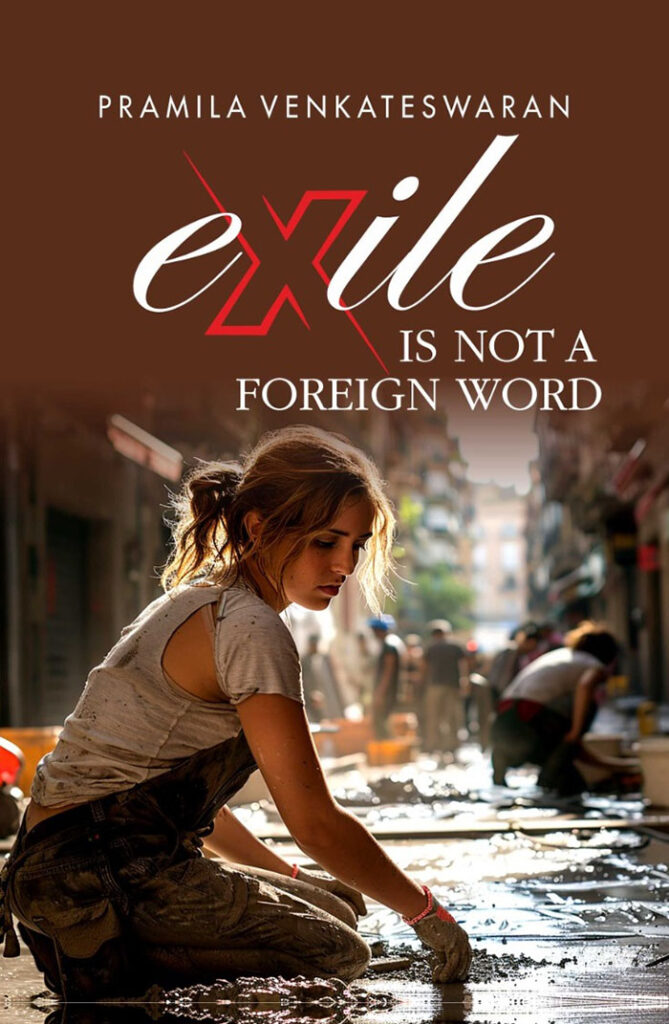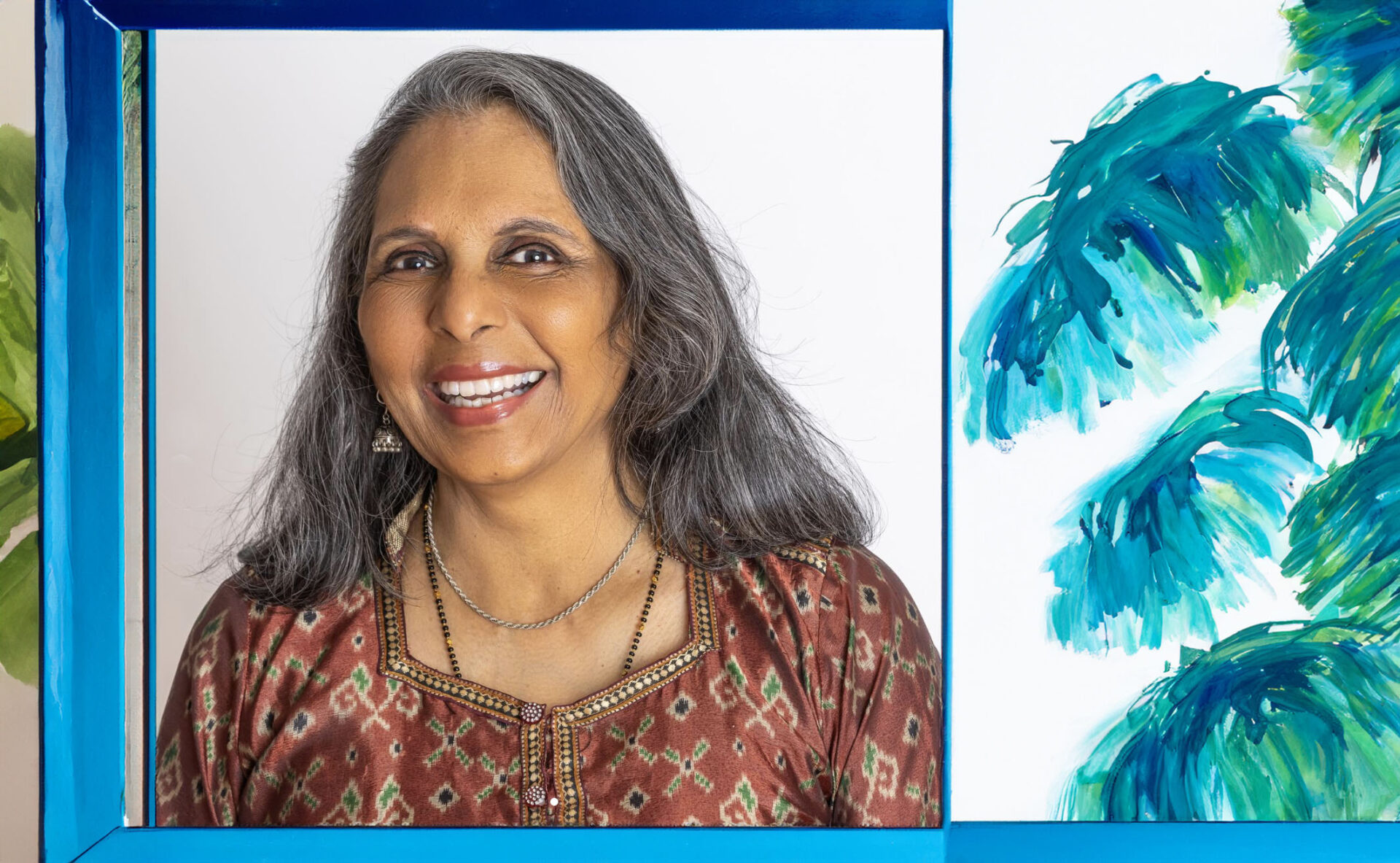“An erudite voice, Venkateswaran offers a peace manifesto.” —Shadab Zeest Hashmi, author of Ghazal Cosmopolitan
“Throughout these poems of deep care and witness, Venkateswaran affirms the resiliency of community despite the boundaries that separate us.” —Christine Kitano, author of Sky Country
Pramila Venkateswaran
Walls: A Poetics
Hannah Arendt wonders about thoughtlessness—
our pushing thought aside like a stone caught in the mouth
while chewing dinner,
how we willfully look at or away from atrocities.
Driving on Pond Path on an early February morning,
my worries turn to dust when I see the sun,
a fat, gold semicircle, rising between the trees.
By day the sun’s wand exposes the bones of the city,
awakening foul air, the hues of dawn distant.
I am unnerved by the thought that I can be
violent towards the ones I don’t recognize,
who are different.
I send my thoughts out like birds to the
borders, willing joy to people remaining
unknown, reduced to numbers.
How brave am I to think of others
before myself? Illuminate my world with
thoughts that can dismantle walls?
W.H. Auden’s “Partition” mocks the lawyer
who cut India like cheese
into India and Pakistan:
It is as if the Raj itself got dysentery,
hurriedly drew a line on a map, half-half,
rushed to the loo,
then retreated to England—
for fear of getting shot.
No leader could calm an ocean of bodies
rushing to safety,
stem the rivers of blood,
raththa aaru, as amma recalls.
Half a century after Partition no one in my family says,
I want to go to Pakistan for a vacation. A wedge
in the collective psyche plunges so deep, we still wade in it.
I watch with fascination a documentary about an activist
who gathers school children from both countries;
they mingle like streams.
The children echo, I want peace. No seema, No sirhud.
But as they flow toward peace,
wounds of the border break afresh.
The language of rulers
and the language of the rabble
elide over details.
Walls have secret openings, hidden
passages. Consider castle
walls and forts.
What are walls made of? Pieces of earth
spirit, not dead matter. We throw rocks at walls
that restrict us, diminish our future.
Do walls have eyes and ears? Do walls talk?
What do they say? Do they shout, flex their muscles?
Do walls erode, lose stones, crumble?
Can we hear where their veneer is weakest?
Yes, yes, yes, yes, yes, yes and yes.
Just keep making dents. Soon the structure will crumble.
Like papadams.

Bread
After the explosion, after the unruly scattering,
uneasy quiet on the streets, shut windows,
litter.
The baker turns on the light in his shop,
wipes the front window with its single bullet hole
springing rays of splintered glass
and begins to knead the dough.
Someone’s got to make bread even during war,
he says matter-of-factly.
Soon people will step like shadows
onto the street, weave their way to him
and carry home a loaf to be shared.





